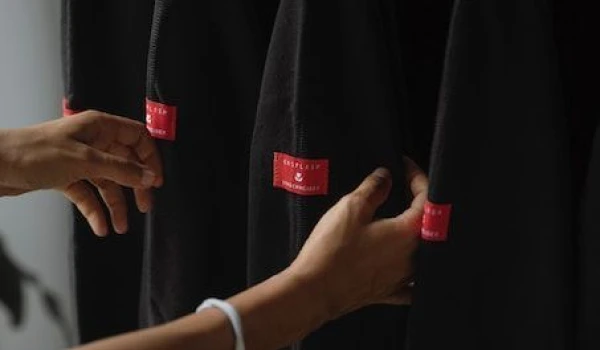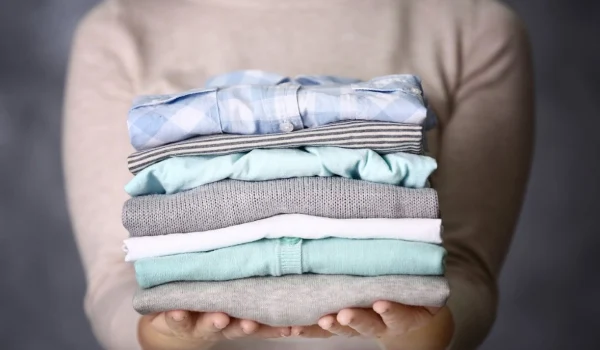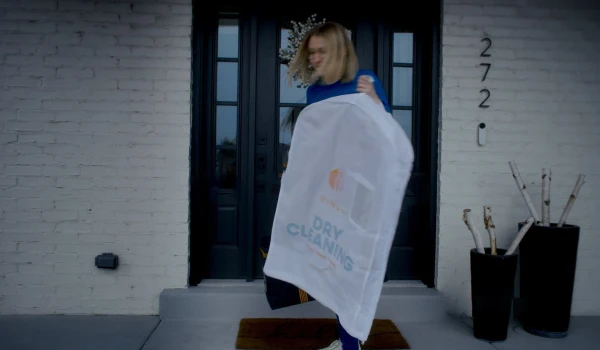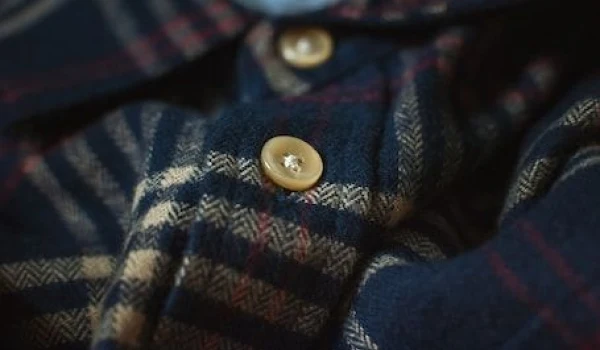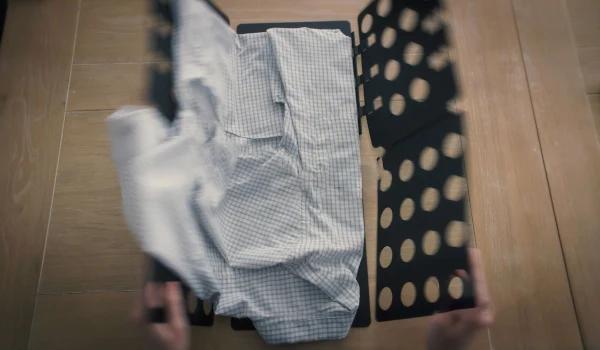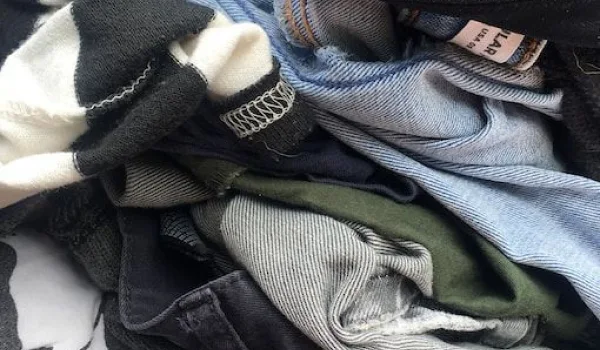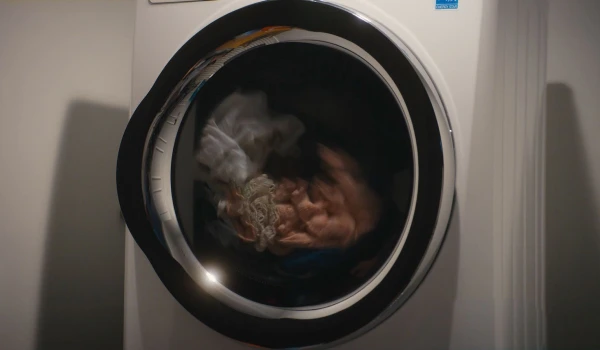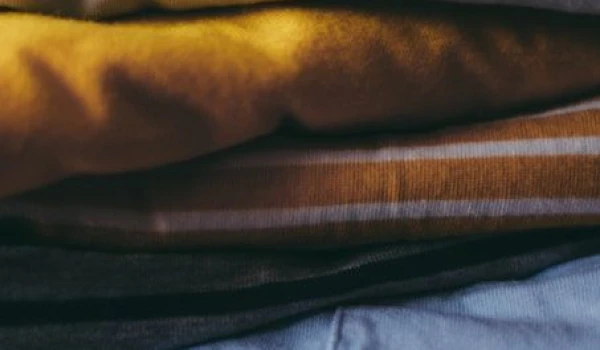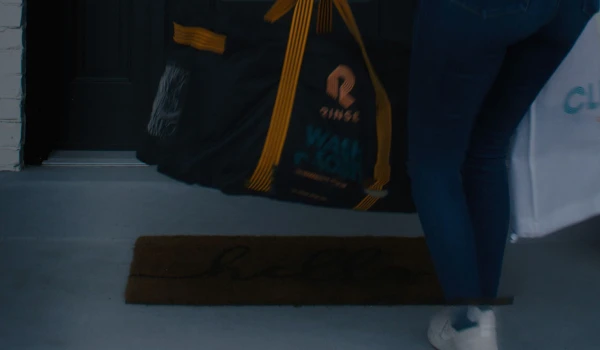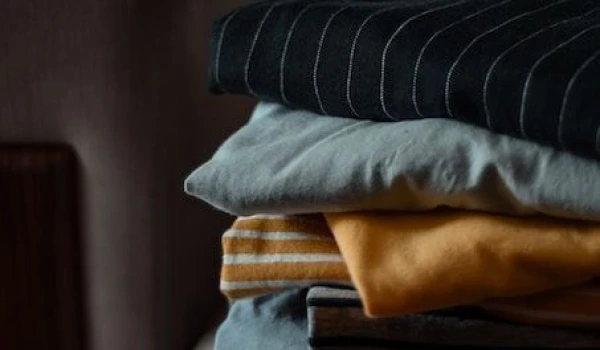Introduction
Fabric softener, often hailed for its promise of cozy, fragrant clothes, has become a laundry essential for many. However, its seemingly harmless role in the quest for softer garments raises questions: Is fabric softener bad or truly a friend to all fabrics, or could its charm conceal potential drawbacks?
In this exploration, we unravel the mysteries of fabric softeners, scrutinizing their purpose and the types of fabrics that may not benefit from their touch.
This article aims to present a balanced view, shedding light on both the advantages and disadvantages, empowering readers to make informed choices about using fabric softeners in their laundry routine.
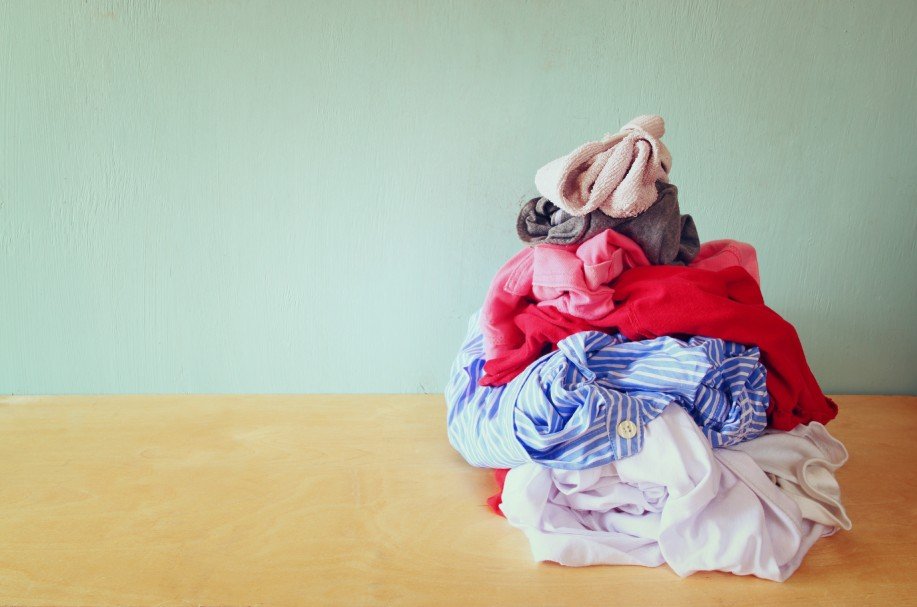
What Is Fabric Softener & What Does it Do?
Fabric softener, also known as fabric conditioner, plays a pivotal role in the laundry routine, contributing to the allure of soft, pleasantly scented clothes. Its purpose extends beyond mere fragrance, aiming to enhance the texture of fabrics and mitigate static issues.
When applied during the laundry cycle, fabric softener coats the clothing fibers, forming a protective layer that imparts a luxurious softness and makes your clothes fluffier.
This conditioning agent, perceptible to the touch, leaves the fabrics feeling smoother and contributes to their longevity. You can even enhance the results using a dryer sheet to remove static electricity and a wool dryer ball to keep each article separated during the tumble cycle.
What Does Fabric Softener Do?
It acts as a conditioner for your clothing and bedding, working magic during the laundry cycle. It doesn't tackle stains or serve as a fragrance; its formula contains waxy fatty acids. These positively charged fatty acids are drawn to the negatively charged clothing in the washing machine, lubricating the fibers and neutralizing the charge.
A dryer ball is often used to prevent the clothes from clumping together. The question then arises: Is fabric softener necessary for your laundry routine?
Using fabric softener results in a noticeable decrease in wrinkles, minimal static, and fabrics that feel irresistibly soft to the touch. After the wash, your clothes are enveloped with a fresh scent. Moreover, fragrance-free fabric softeners are available, providing all the benefits without the added scent.

Impact of Fabric Softeners on the Environment
Fabric softeners, though providing laundry benefits, pose significant environmental concerns.
Opting for eco-friendly solutions like biodegradable fabric softeners helps mitigate the environmental impact of traditional alternatives.
Traditional softeners, often petroleum-based, present challenges in terms of biodegradability during manufacturing. The combustion of petroleum contributes to harmful emissions, including carbon dioxide, a potent greenhouse gas.
Some liquid fabric softeners derive from palm oil, which, while high-yielding, has ties to deforestation. To address these issues, opting for sustainably sourced palm oil, certified by the Roundtable on Sustainable Palm Oil (RSPO), is crucial.
Potential Environmental Impact of Fabric Softeners
-
Chemical Compositions: Fabric softeners housing toxic elements like glutaral (glutaraldehyde), threaten marine life and introduce harmful substances into aquatic environments.
-
Biodegradability: Ingredients like Quats, prevalent in fabric softeners, resist natural degradation, particularly in water systems. This resistance to biodegradation raises concerns about the potential harm they can inflict on aquatic ecosystems, persisting in the environment.
-
Eco-Toxicity: Using dyes in fabric softeners, discharged during manufacturing, also disrupts aquatic ecosystems. This interference hinders crucial processes like plant photosynthesis, contributing to an overall negative impact on the environment and aquatic life.
Additionally, disposable dryer sheets laden with non-recyclable polyester and chemicals contribute to air pollution, emphasizing the need for eco-conscious alternatives.

Pros and Cons of Using Softener
In the quest for softness and to ensure that laundry smells good, the use of fabric softeners has advantages and disadvantages. Let's delve into the pros and cons associated with the use of fabric softeners.
Pros of Fabric Softener
We've already alluded that incorporating fabric softeners into your laundry routine reduces wrinkles and makes clothes softer, enhancing your washing machine experience. However, we go into more detail on the several advantages that using fabric softeners in your laundry routine can yield below:
-
Removes Static: Fabric softeners reduce or eliminate static, elevate the comfort of clothes, and ensure a more enjoyable wearing experience. Remember to use a dryer ball!
-
Prevents Wrinkles: A notable advantage of fabric softeners lies in their ability to contribute to smoother fabrics, diminishing the likelihood of wrinkles. This, in turn, simplifies the ironing process, making it less of a chore for users.
-
Adds Nice Scent: Fabric softeners go beyond functionality, introducing a delightful fragrance that enhances the freshness of laundered items, leaving clothes with a pleasing aroma.
-
Maintains Form: Softeners play a crucial role in preserving the shape and structure of clothing. This feature ensures that the fabrics retain their original look, appearing newer for an extended period.
-
Locks in Colors: Creating a protective layer, fabric softeners contribute to maintaining the vibrancy of colors. This protective measure helps prevent fading over time, preserving the aesthetic appeal of clothing items.
Cons of Fabric Softener
Despite their benefits, fabric softeners may have drawbacks beyond the environmental ones mentioned above, such as:
-
May Trigger Allergies: Some individuals may be sensitive to the chemicals in fabric softeners, leading to allergic reactions.
-
Not Compatible with All Fabrics: Certain fabrics, particularly moisture-wicking and flame-resistant materials, may not benefit from or can even be harmed by fabric softeners.
-
Builds Up on Clothes: Over time, fabric softeners can leave a residue on clothing, affecting their absorbency and breathability.
-
Preservatives and Dyes: Including preservatives and dyes in fabric softeners raises environmental and health concerns.
-
Petroleum-Based Product: Traditional fabric softeners, often petroleum-based, contribute to environmental issues due to their non-biodegradable nature.
Understanding these pros and cons empowers individuals to make informed decisions about incorporating fabric softening into their laundry routine.

6 Types of Garments That Don’t Need Fabric Softener
Fabric softeners may only be somewhat beneficial, especially for certain garment materials. Understanding which fabrics don't require or may even be negatively impacted by fabric softener is crucial for proper care.
1. Wools and Delicates
Wool and delicate fabrics like silk or lace often do not benefit from fabric softeners. These materials have soft fibers that can be damaged or distorted by the chemicals in softeners. Opting for gentle, specialized laundry detergents ensures the preservation of their texture and quality.
2. Swimwear
Typically made of synthetic materials like spandex or nylon, swimwear fairs better without fabric softeners. These fabrics rely on their specific properties, like elasticity, for optimal performance. Fabric softeners may compromise these qualities, affecting swimwear's snug fit and overall functionality.
3. Towels
Contrary to expectations, towels only sometimes thrive under the influence of fabric softeners. Softeners can leave a residue on towels, reducing their absorbency over time. To maintain the fluffy and effective nature of towels, it's advisable to skip the softener in the laundry cycle.
4. Linen
Linen, renowned for its natural breathability, thrives without fabric softeners. Its texture naturally refines with each wash, embodying a delicate softness. Liquid fabric softeners, particularly cationic ones, risk disrupting this innate softening process, potentially diminishing the unique qualities that make linen a preferred choice for those who appreciate its natural appeal and comfort.
5. Workout Clothes
Moisture-wicking fabrics commonly found in workout clothes are designed to manage sweat efficiently. Fabric softeners can compromise this functionality by clogging the fabric's pores, diminishing its ability to wick away moisture. You can skip the softener to ensure your workout gear retains its performance properties.
6. Baby Clothes
Baby clothes, often made from delicate materials and designed for sensitive skin, may not be ideal for fabric softeners. The chemicals in softeners may trigger allergies or skin irritation in infants. Opting for hypoallergenic laundry detergents ensures the gentle care that baby clothes require.

Fabric Care Redefined with Rinse
Experience a revolution in fabric care with Rinse – your expert in laundry solutions. Our laundry detergent, full of surfactants, goes beyond conventional cleaning, making clothes impeccably clean and exceptionally soft.
Moreover, Rinse is committed to sustainable practices for all laundry and dry cleaning orders. Not only that, but we offer the ultimate convenience by picking up your clothes and dropping them off sparkling clean right to your doorstep.
Trust Rinse to redefine fabric care in your washing machine or through our premium dry cleaning services.
Contact us at Rinse today to see our skill in action.



